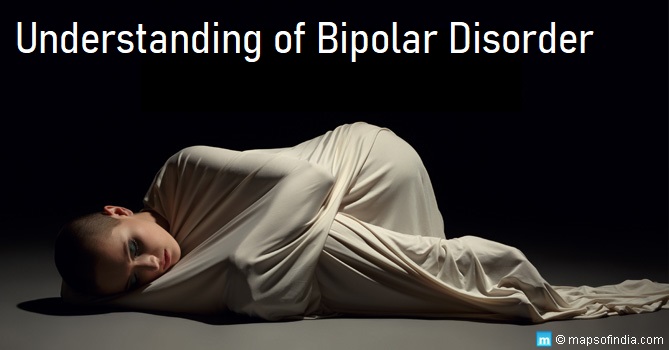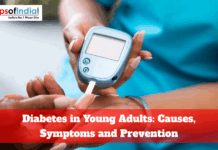Bipolar disorder is a psychological disorder that was previously known as manic depression. This disorder is characterised by extreme changes in mood from a very high and elevated mood to a very low and upsetting mood. Individuals with bipolar disorder go through episodes of depression and have a disrupted life when they have their lows. And they’re a complete shift into the opposite mood where they energetic as if they are flying and can do anything and everything. The mood changes and their duration are different for every case of bipolar disorder.
Bipolar disorder is categorised into three main types:
- Bipolar I disorder- Individuals have one manic episode, followed by a hypomanic episode. Hypomanic episodes are when someone is in a highly elevated mood. And Manic episodes are when someone is in extreme high moods, more intense and severe than hypomanic episodes.
- Bipolar II disorder- Individuals, have at least one hypomanic episode and episodes of depression but no maniac episodes.
- Cyclothymic disorder- Multiple hypomania episodes and their symptoms last for at least two years in adults and one year in children. The severity of the episodes is not as severe as episodes in Bipolar I and Bipolar II.
Mania and Depressive episodes are different, and they are also observed separately for a better understanding. Symptoms for Mania and Hypomania are the same.
Symptoms for Mania and Hypomania:
- Increased self-esteem, self-confidence
- Euphoric feeling
- Increased talkativeness
- Active social life
- Loss of appetite
- Having less sleep which does not affect their mood or health
- Poor judgment while making decisions (such as drinking too much alcohol)
Symptoms for Depressive episodes:
- Trouble sleeping
- Feeling extremely sad, hopeless,
- Weight gain or weight loss
- Tiredness
- Fatigue
- Loss of interest in activities
- Poor social life
- Trouble concentrating and staying focused
What causes Bipolar Disorder?
The reason, which causes bipolar disorder, is different for every individual. Certain factors may lead to causing bipolar disorder, such as:
- Genetic factors, if someone in the family has it, there is a possibility the genes can carry it to the next generation.
- Environmental factors, any traumatic event or extreme stress in life can cause bipolar disorder.
- Sometimes abnormalities in the brain structure or how it functions can also cause bipolar disorder, such as an imbalance in the secretion of certain hormones.
How is it diagnosed?
Medical professionals such as psychiatrists or psychologists are the ones who diagnose and treat bipolar disorder. They identify for symptoms and perform certain tests, which include physical check-up and psychological assessments. The results of those tests determine how every individual should be treated. It is difficult to diagnose bipolar disorder in young children because they may not display the symptoms, which may be more identifiable in adults.
Treatment
Bipolar disorder is treated mainly through psychotherapy and medications. A few changes in habits also help in treating bipolar. Bipolar is also sometimes treated using natural remedies along with medicines and therapies. The type of treatment depends
- Medication: Medicines are given, so the symptoms reduce, and the mood becomes stable. There are different types of medicines prescribed as per the need of the patient. Medicines prescribed include:
- Mood stabilisers such as lithium
- Psychotic drugs such as olanzapine, risperidone
- Antidepressants- fluoxetine/olanzapine
- Benzodiazepines
- Psychotherapy/Counseling: Psychologists hold therapy sessions like cognitive behavioural therapy (CBT), through which they identify factors that trigger the symptoms. After identifying the symptoms, they work together to strategise ways to manage those symptoms and help maintain a stable mood.
- Home remedies: Simple changes in habits can also greatly impact individual suffering from bipolar disorder; it works very efficiently with therapy and medication.
-
- Having a healthy diet, along with eating on time
- Getting enough sleep and maintaining a proper sleep cycle
- Following a routine
- Exercising
- Spending good quality time with family and sharing concerns




